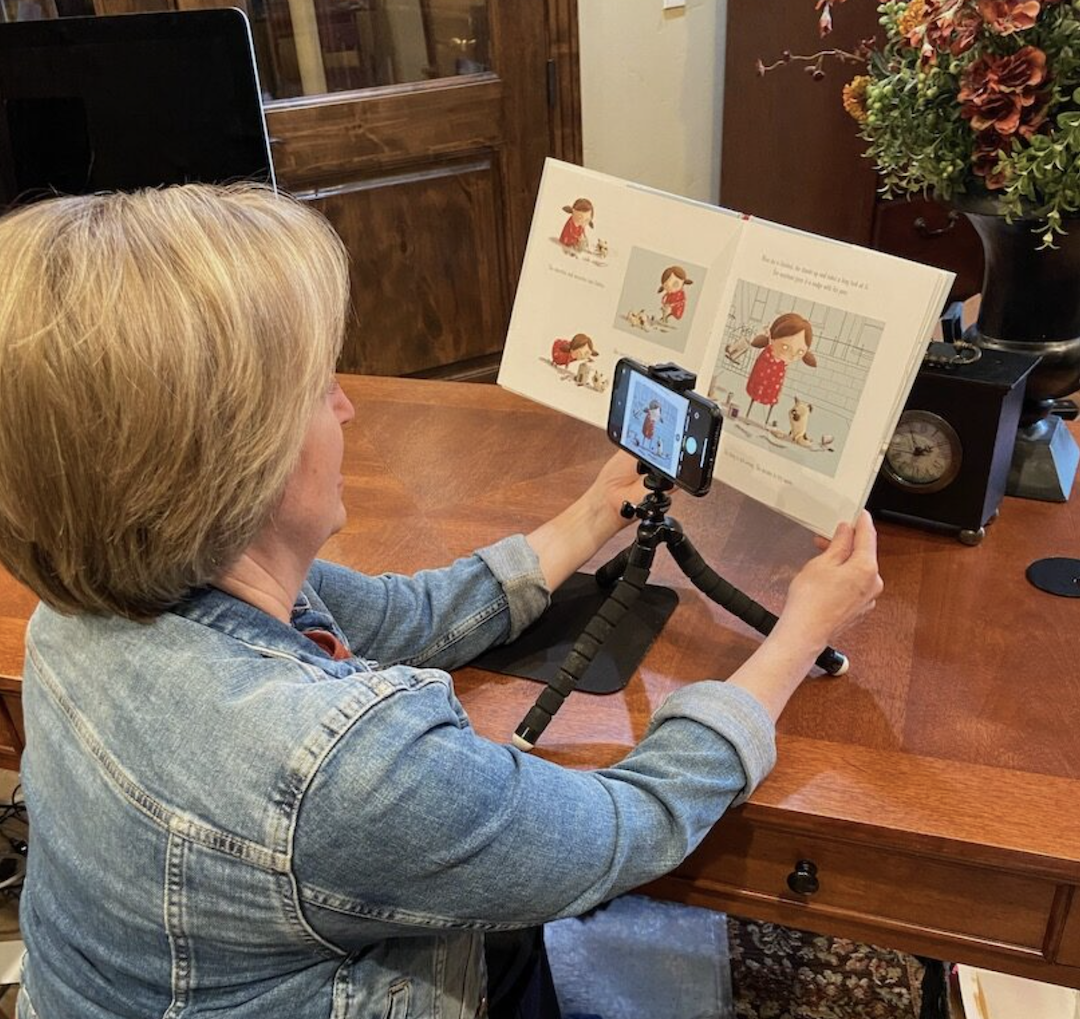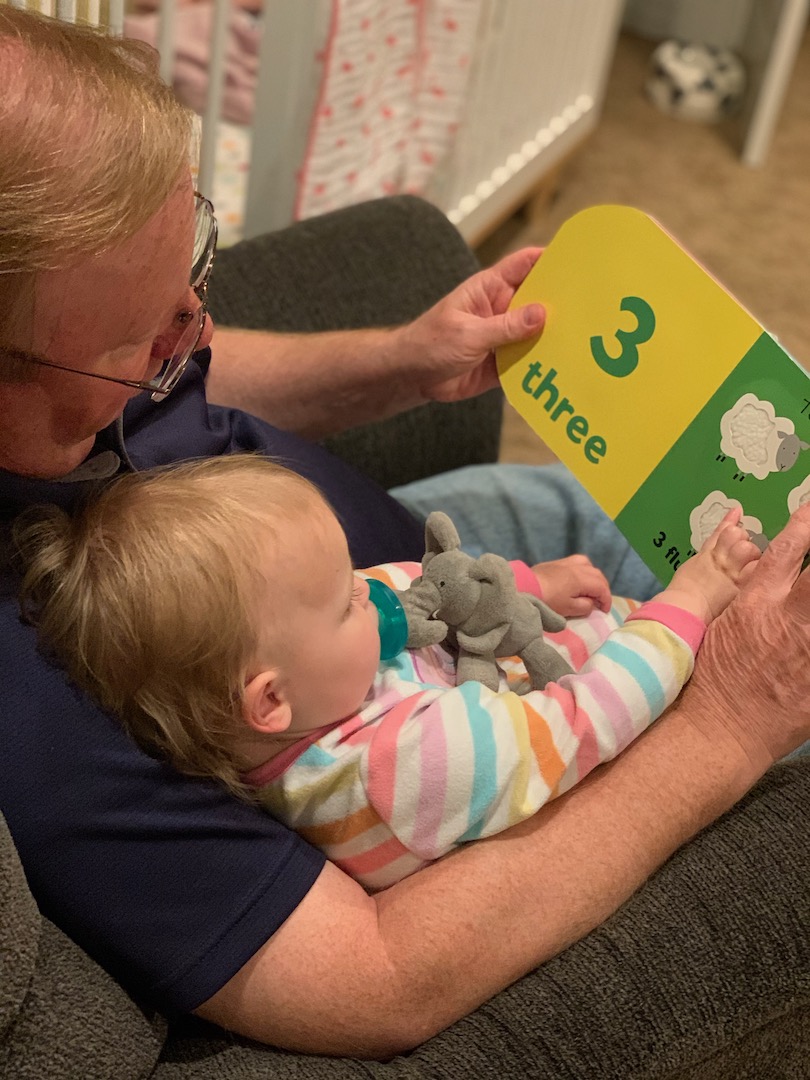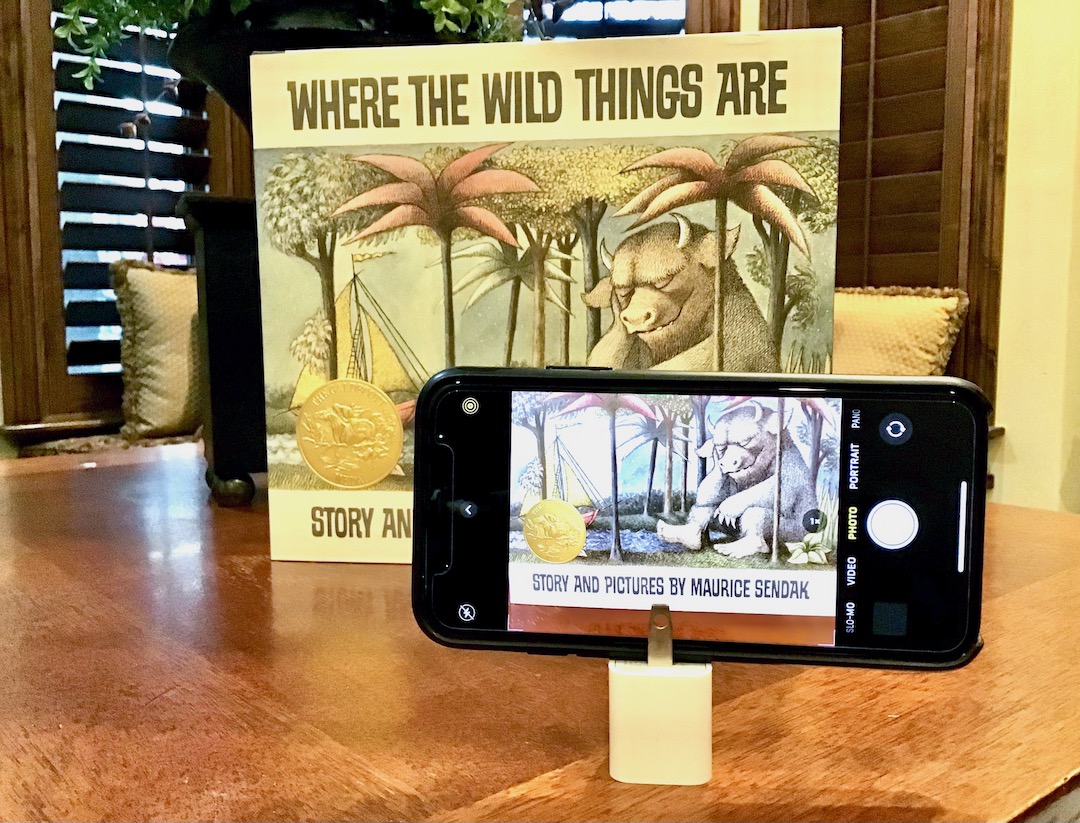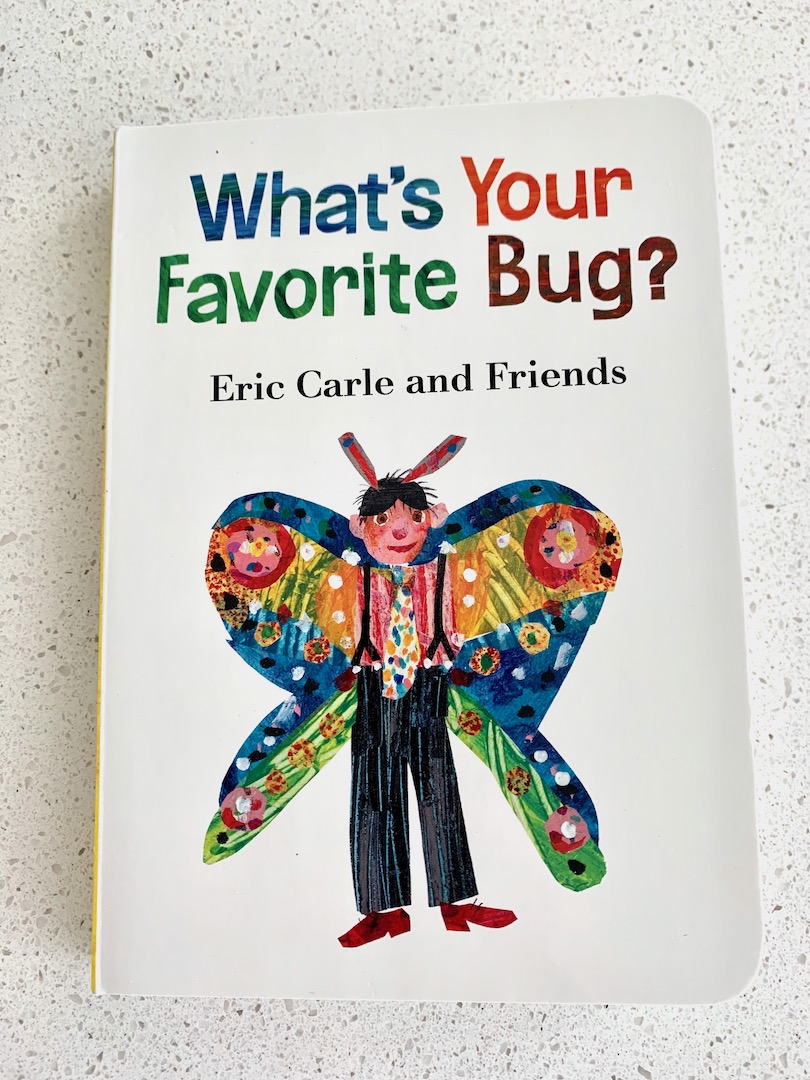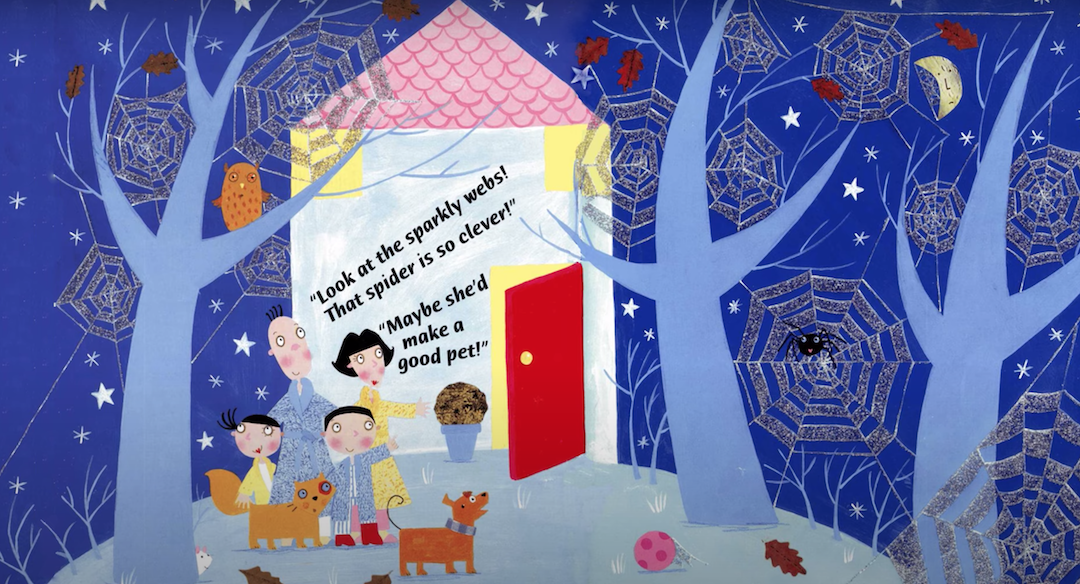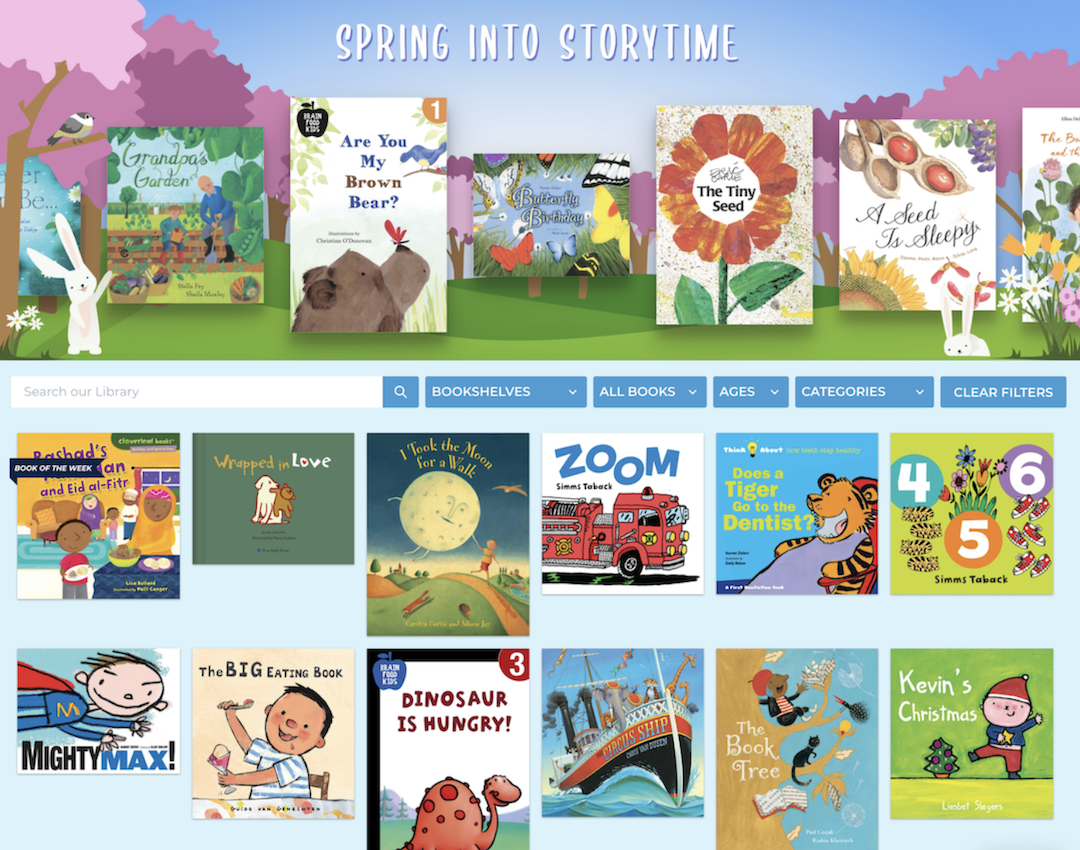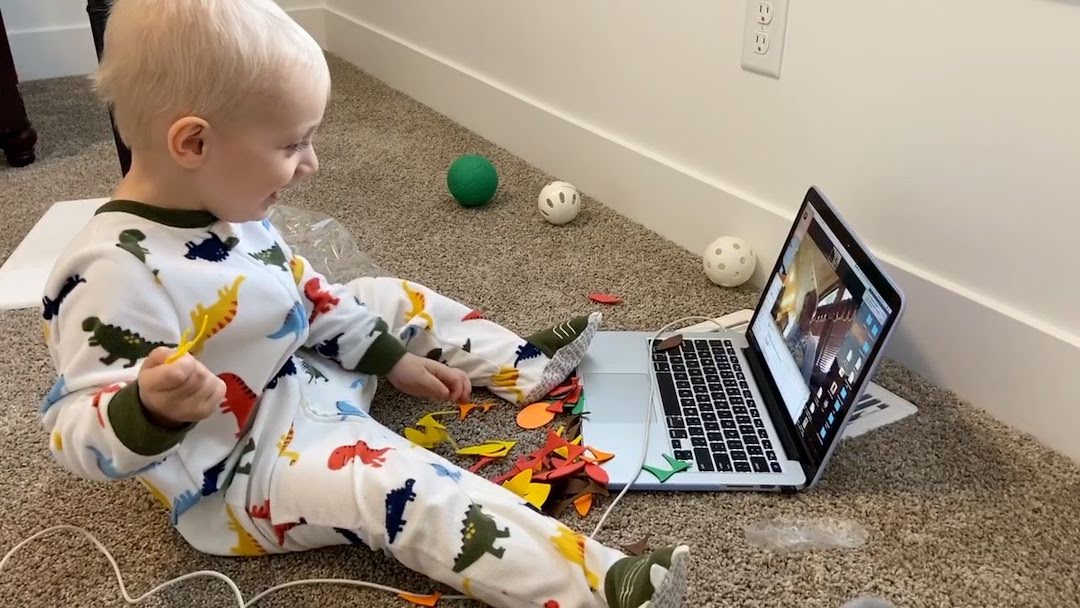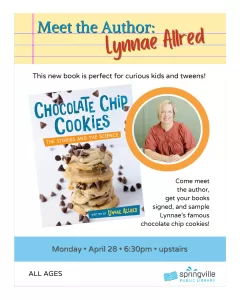Virtual Storytime Is All About Connection
I remember the tremor in Mrs. Eberhard’s voice the day Charlotte became comatose and slipped into silence inside of a crate at the State Fair with Wilbur the pig looking on in despair. My second-grade teacher had read that book to her classes annually for a couple of decades, but the tragedy still made her weep. I remember feeling all of the anguish of Wilbur’s loss as I swallowed back the lump in my little seven-year-old throat.
Weeks later, I could almost taste chewing gum flavored like tomato soup and blueberry pie, as Mrs. Eberhard introduced us to four grandparents who slept in the same bed at Charlie Bucket’s home. She used slightly different voices as she narrated Charlie and the Chocolate Factory. That way, we could understand when different characters were speaking.
It wasn’t common educational practice in those days to read aloud in a classroom. But with more than two decades of experience, Mrs. Ebarhard knew what helped children thrive. I still remember nearly every book she ever read to us. Second-grade Storytime was a magical part of my childhood.
Virtual Storytime – Passing on the Gift of Reading
Recently, I hosted two of my granddaughters overnight and the 6-year-old proudly presented me with a brand new copy of James and the Giant Peach and said her Dad had requested that I start it with her. Only weeks before, he had sent me a “proud Dad moment” video clip of his daughter reading confidently from the Boxcar Children, and I knew Mrs. Eberhard and her library of literary classics were still impacting my family into the third generation.
I believe there may not be any more important habit for a parent to establish than that of reading aloud to a child. The cognitive and academic benefits are well-documented by researchers, but you only need to hold a freshly-bathed child in your lap once while reading a beloved book to know that reading to a child is as much about the connection between two human beings as it is between the child and letters and words.
As soon as my grandchildren were old enough to hold books of their own, I started gifting books they could keep in their permanent libraries. But buying a book for a child isn’t nearly as fun as reading a book to a child. Could I still impact my grandchildren’s love of reading when I’m only present at bedtime a handful of bedtimes per year? I knew I could.
Using Technology to Read Aloud Even When I’m Miles Away
I can’t visit my grandchildren as often as I like, but I desperately wanted to be part of their lives. Reading to them seemed to be an obvious and impactful solution. But it wasn’t as easy as I expected. Simply put, the laptop doesn’t replace the lap. And while I’m certain others before me have attempted various methods (and possibly with more success), I’ll offer six virtual storytime solutions that have worked for me.
1. FaceTime Storytime
The simplest of the remote read-aloud solutions, a free video smartphone call is a method that would have left my own grandmother weeping at the possibilities. But FaceTime and Google Duo calls are so simple that we sometimes neglect to consider how we could make them even better.
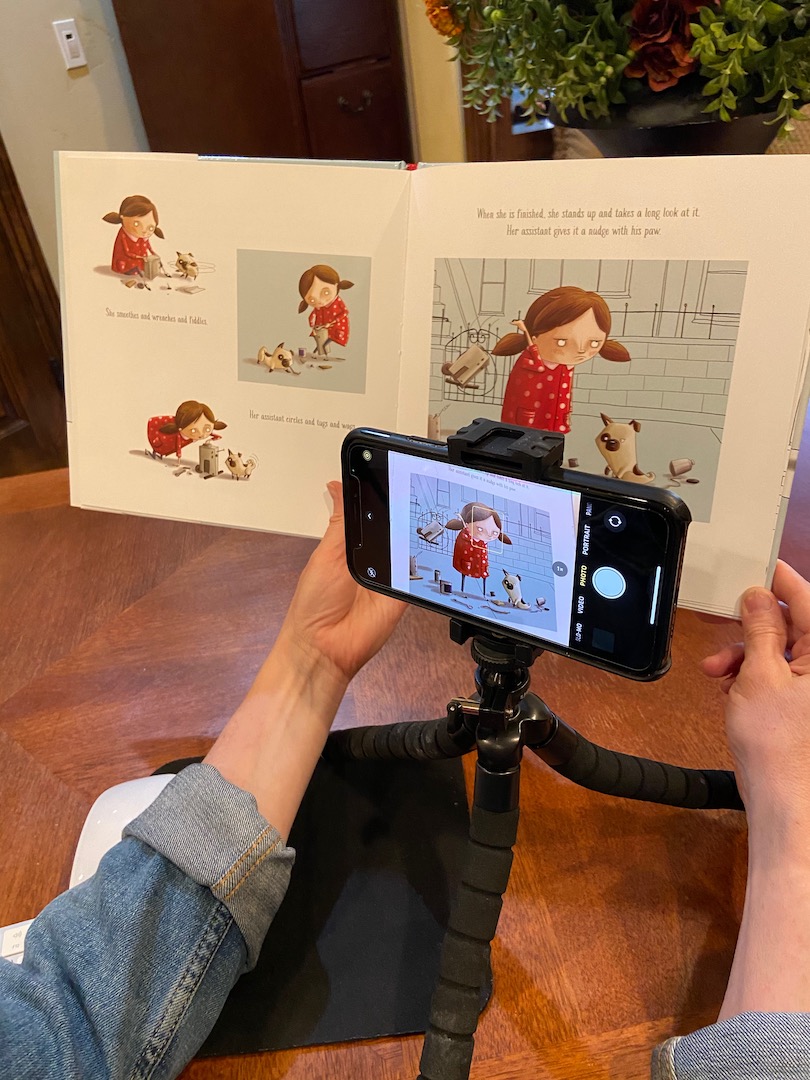
PROS:
- The call is “free,” can be scheduled or organized on a whim, and opens up a fun new way to communicate with young children who don’t have the patience or the attention span for a typical conversation.
- As you show the book illustrations via your smartphone camera, you can move your hands in and out to easily zoom in on details in the book you want a child to notice.
CONS
- It’s difficult to manage a virtual storytime holding a book in one hand and a phone in the other.
- The small screen size means that the experience is sub-standard for a child. They won’t be able to see detail in illustrations, and the adult controls what illustrations the child looks at.
Improving Your FaceTime Storytime:
For starters, get your hands free so you don’t have to fight turning pages while you are holding a phone. One option we’ve had success with is to have one grandparent hold the book and do the reading while the other manages the phone camera.
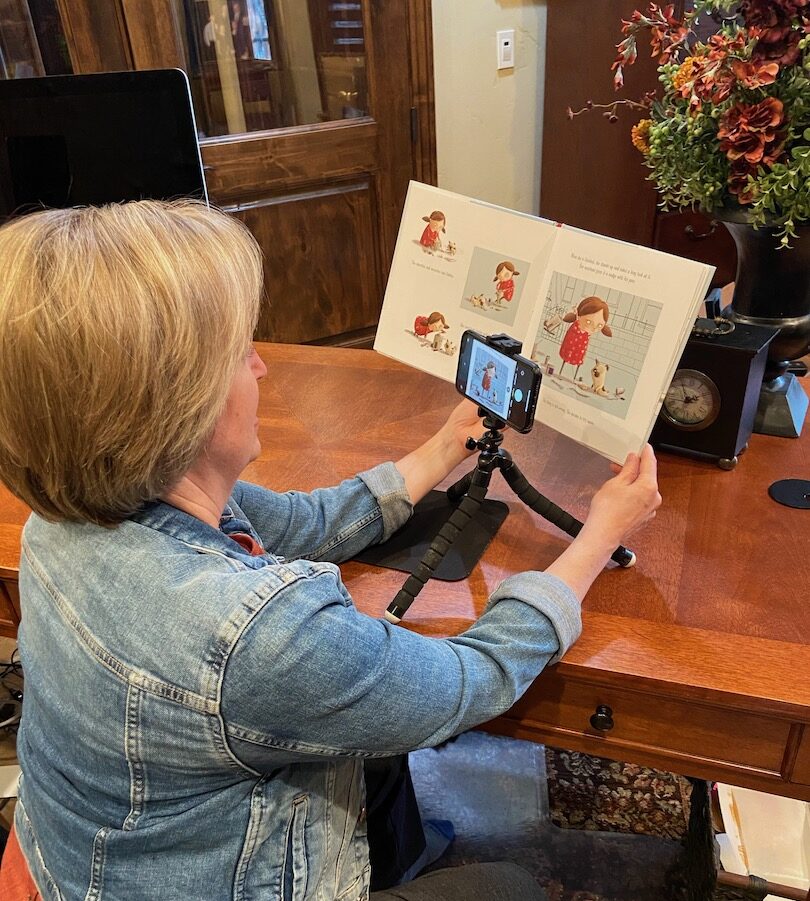
If you don’t have access to a second person on the “reading” end of the call, invest in an inexpensive smartphone tripod or balance your phone on top of the charger it came with, with the phone nestled between the prongs. The tripod will hold the phone still and level.
A tripod also leaves your hands available for turning pages and pointing out details. You’ll have the difficulty of putting the phone between yourself and the book you are trying to read, which may make reading a bit more cumbersome. You will also need to move the book around instead of the phone in order to show different pictures.
2. Videoconferencing Storytime
In my opinion, this is an improvement over a phone call storytime. It’s best if they have a laptop or computer on their end of the call as well. A larger screen simply gives you more visual real estate to work with and is a better experience overall for both the child and the grandparent.
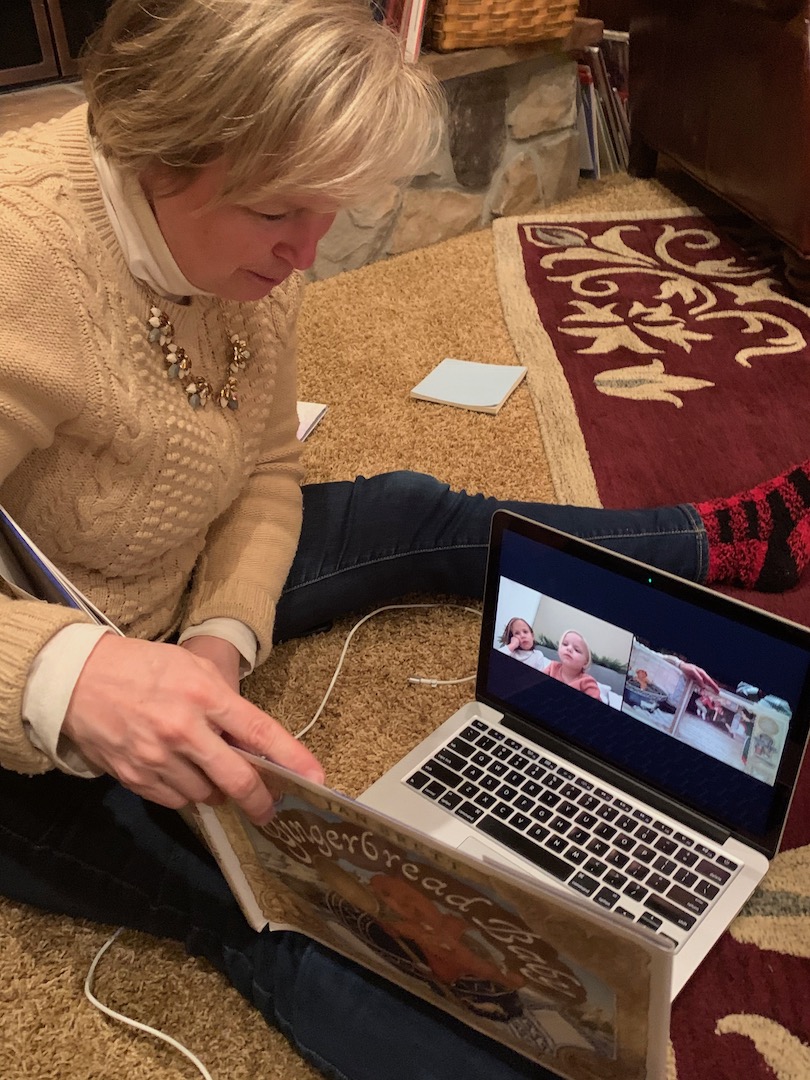
PROS
- By using the “gallery” option to view both of our shared screens, I’m able to see how my grandchildren are reacting to the story, as well as get a visual on whether I’m holding the book in a way that they can see well.
- Once the story is over, we can easily extend the conversation with other activities.
CONS
- Requires some gymnastics to manage. You’ll need to be able to read upside down or at least from an unusual angle. I usually balance the book against my desk or, as in the photo above, on my leg to get it high enough and steady enough for the kids to see.
- A Zoom Virtual Storytime may require a bit more planning and scheduling than a simple phone call. Like scheduling any meeting, you have to be certain both parties are available at a pre-scheduled time, which may make impromptu storytimes a bit more complicated.
3. Read from Duplicate Copies of the Book
This method is a favorite low-tech method for reading to a child. You simply have an actual copy of the book available on both ends of a phone call. This method works well both for picture books and for longer chapter books (with few or no illustrations). You can even “borrow” a parent to provide a substitute lap.
PROS
- This is a great solution for chapter books without illustrations. You and your grandchild can take turns reading.
- For picture books, your grandchild will be able to see and physically touch the book, turning pages at your cue.
- The child will have the ability to control their own visual space, looking at details they choose to concentrate on rather than what you choose to zoom in on.
- The images and illustrations are NOT reduced to postage-stamp size available on a smartphone screen. Printed words will also be far easier for the child to read.
CONS
- You must purchase or borrow more than one copy of each book you intend to read.
- A child may not manage the page-turns as smoothly as you would hope, making the experience potentially frustrating for both of you.
- Very young children require the presence of a second adult to assist on the child’s end of the call.
- You have very little ability to monitor the child’s body language which is a critical component for reading aloud effectively.
4. YouTube Virtual Storytime
Another simple and effective way to read to a child remotely is simply to choose a favorite book and look for a YouTube version. Thousands of popular children’s books have been pre-recorded by online storytellers. You simply share your screen and enjoy a reading of the book together. Some of my recent favorites are Aaaarrggh Spiders! By Lydia Monks, read by Alan Smithee, and Purple, Green, and Yellow, By Robert Munsch, read on Sue’s Reading Corner
PROS
- Some YouTube storytelling quality is remarkably good.
- Someone else has gone to the work to photograph the story and make it available online.
- A great storyteller may have added superb voice acting, music, and fun sound effects.
CONS
- Some of the YouTube storytelling is remarkably poor quality. You’ll want to vet your choices carefully prior to sharing them via videoconference.
- You risk being shown up by a better performer. This call is supposed to be about your connection with your grandchild.
5. Leave the videography, but not the storytelling, to the professionals
The day I discovered Storytime Online, a library of books read by actors who are members of the SAG-AFTRA Foundation, I thought I had found a virtual storytime goldmine. After all, who doesn’t want to hear Ernest Borgnine reading The Rainbow Fish? All we had to do was drop the grandkids a Zoom link and share our screen. But reading to our own grandchildren was supposed to be the whole point of this effort. If we give up our coveted reading spot to Oprah Winfrey and James Earl Jones, do we unintentionally remove ourselves from the experience? Is there something important about Grandma or Grandpa’s voice doing the reading?
Our solution has been to cheat. We mute the audio and take advantage of the beautiful videography, but read from our own copy of the book, fast-forwarding through the images of the cut-aways showing the celebrities who are doing the reading so that the kids only see images of the book illustrations. It’s a little clunky, but the grandchildren seem to enjoy the experience on their end of the camera since they hear our voices, but see all of the detail of the book pages in full-screen and full-color.
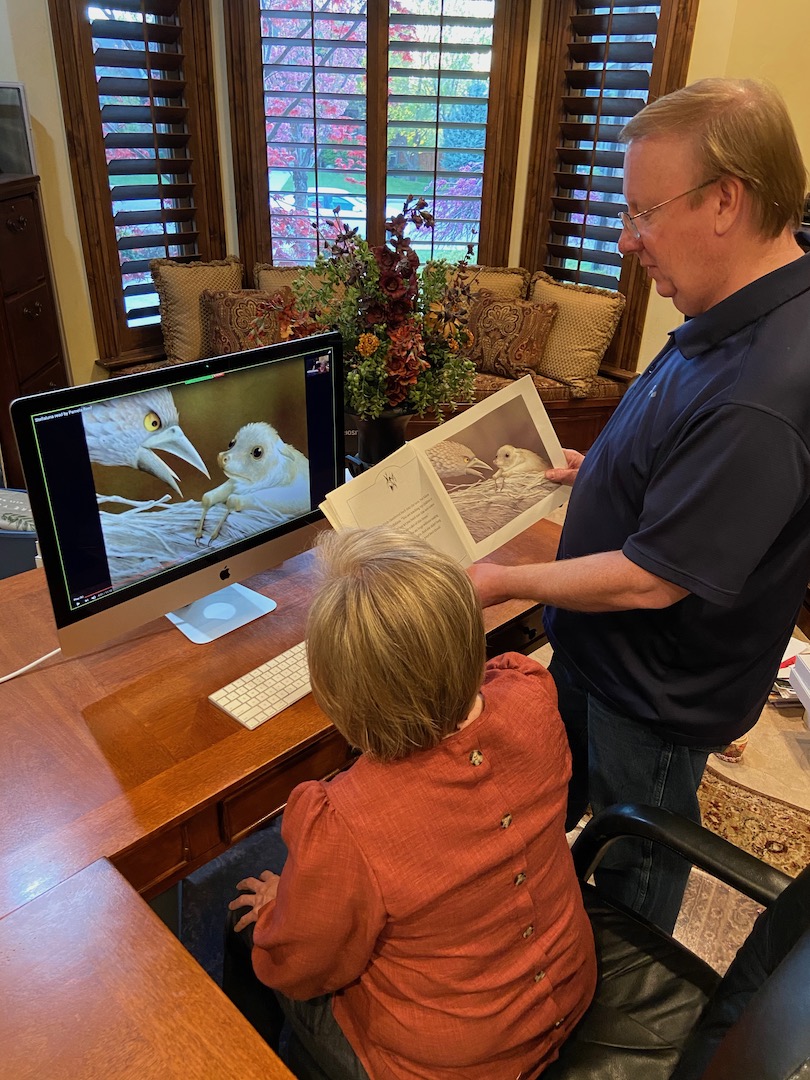
PROS
- Books are read by professional actors, comedians, and other beloved stage and screen professionals
- Professional videography and audio
- Free access 24/7 – no adults required
CONS
- No adult intervention required. (Unfortunately, for our purposes, that was the whole point)
- You need a print copy of the book to read from. This means the book is on the “grandparent” end of the call and puts the book in the grandparent’s library and not the child’s.
- We still need two adults present to run this show. One of us reads, the other navigates the pause and fast-forward controls on the computer.
6. Purchase a Subscription to a Children’s Book App Like Readeo.com
All great technological innovations take a process we all use often and then eliminate steps. Our subscription to Readeo.com is the best source we’ve found for eliminating the technological mumbo jumbo from our virtual storytime. Finally, we can just read together.

Readeo has given us access to more than 400 curated children’s titles, searchable by reading age, topic, and category. You have the option to read with a child on your lap, or by inviting any combination of four different remote “reading buddies” to join you in an online storytime session. We’ve even used the app to connect our reading time with grandchildren living in different locations so the cousins can all listen in at the same time.
PROS
- Read with a child on your lap, or invite up to four different remote “reading buddies” to join you in a remote storytime session.
- Books are curated by a literacy specialist with expertise in early childhood literacy.
- Both the child and the grownup reader have access to the full book layout, and both can control page turns with the click of a button.
CONS
- The Readeo library is not yet exhaustive. But about 400 titles are currently available with more added every month.
- There is a nominal monthly subscription charge, but access to an entire library of books costs less than a single paperback picture book each month.
A screenshot of the Readeo Home Page. Choose from hundreds of beautiful books, sort by age, topic, and category. Rate your favorites and store them permanently on your own “bookshelf.”
Starting Your Own Virtual Storytime Tradition
Whether you begin with the simplest FaceTime solution, or jump in feet-first with Readeo to remove all of the difficult steps and get technological challenges out the way, reading remotely with grandchildren is a joy and worth the effort and expense.
I hear my own father’s voice in my head when I read Make Way for Ducklings to my grandchildren. It’s a story he commonly read to me at bedtime, and I never turn the pages of my own beloved copy without remembering him and the low rumble of his voice as I drifted off to sleep.
I believe we attach not only the memory of the story, but also the voice, the character, and the gentle kindness of the adult who read to us. As grandparents, we have the opportunity to infuse storytime with our own special blend of personality, love, humor, and tenderness. Every Playdatebox we create starts with a great Read-Aloud book. Begin today and create some intentional time (scheduled on the calendar, if necessary) for building this magical connection with grandchildren. The effort will bless your life as much as it will bless theirs.
